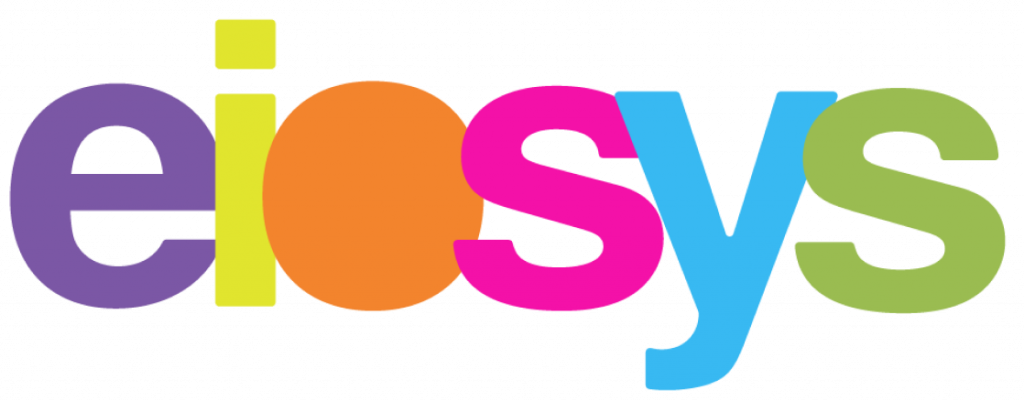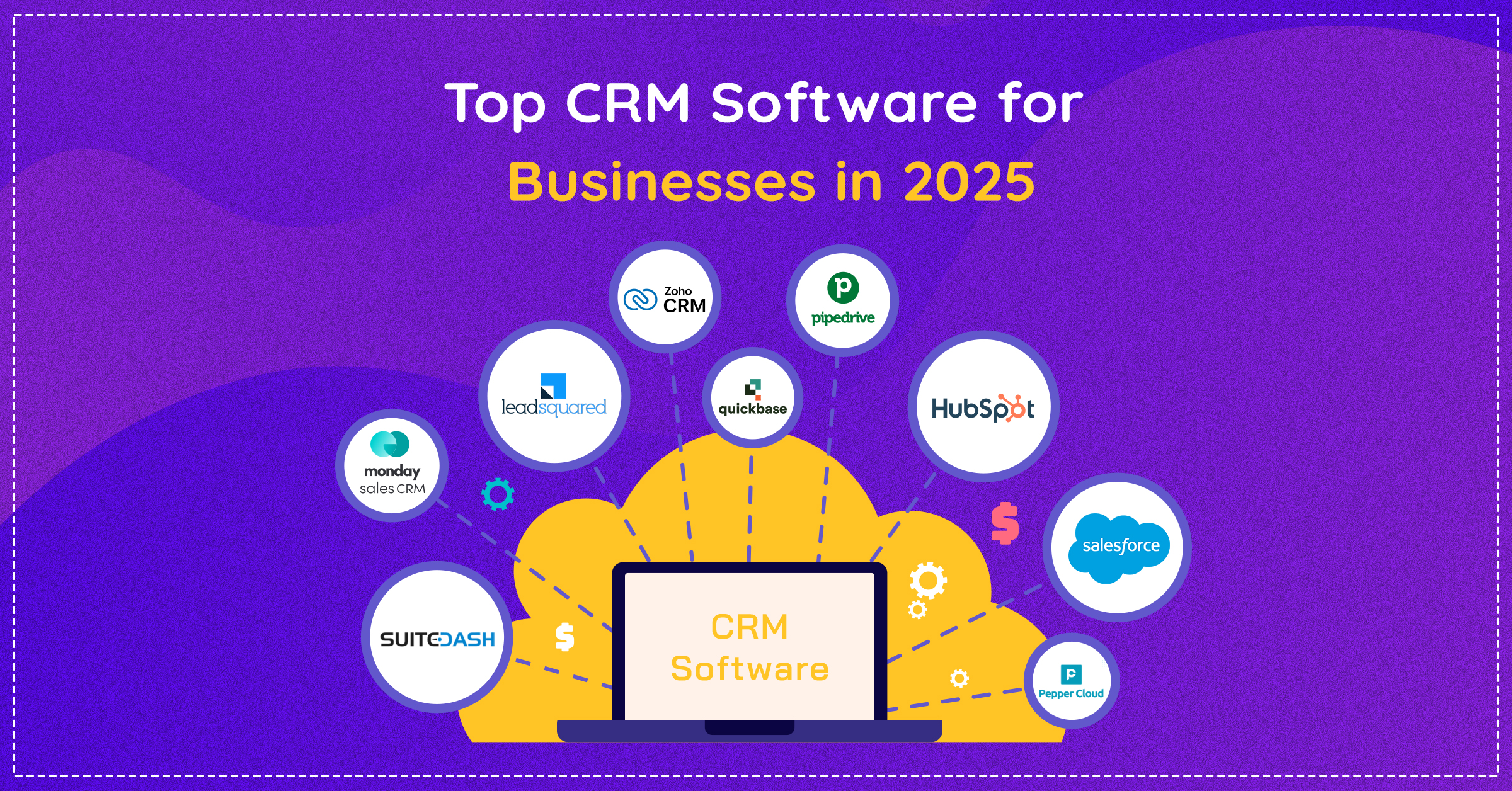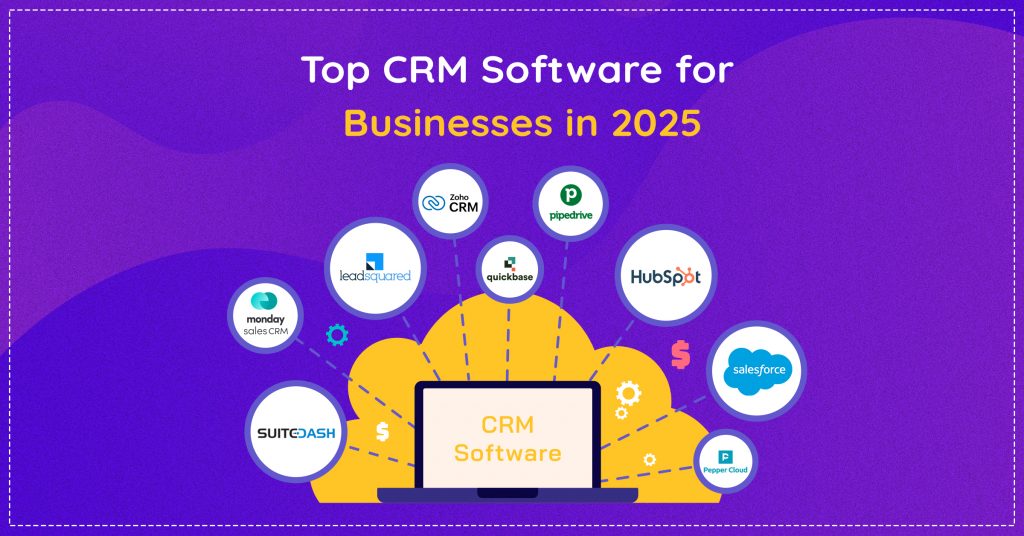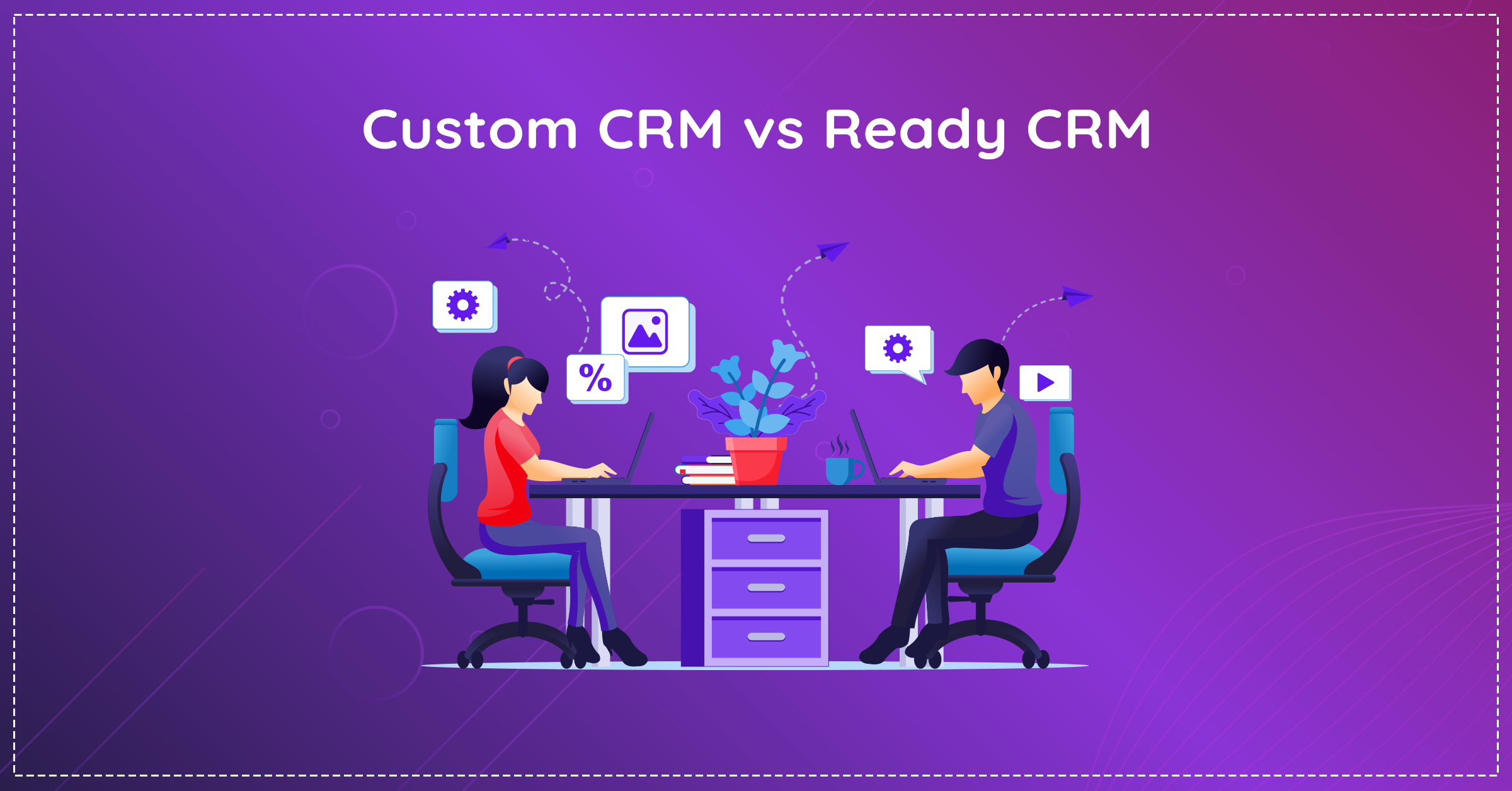Amidst managing sales, customer relations, and understanding market needs, businesses often find themselves overwhelmed. In this scenario, a robust Customer Relationship Management (CRM) tool can be a game-changer, serving as a personal assistant to streamline interactions, organize data, and enhance marketing efforts.
With numerous options available, choosing the right CRM is essential. The author of this blog, Saurabh, has listed down the top CRM tools of 2025, highlighting their pros and cons to help you determine which CRM best suits your business needs.
Some Undeniable Benefits of CRM Tools
1. Customer Engagement and Retention
CRM tools help businesses keep track of customer interactions, preferences, and buying behavior, making it easier to offer a personalized experience. There’s no doubt that companies using CRM systems improve customer retention rates by leaps and bounds.
Moreover, CRM tools allow businesses to send automated follow-ups, offer personalized discounts, and create loyalty programs tailored to individual preferences.
Let’s take an example to understand this. Let’s assume you run an online clothing store. A CRM system can track what your customers buy and send them personalized discount codes for similar items or remind them when their favourite brand has a sale. Result? Happy customers who keep coming back and spending more.
To sum up, a well-integrated CRM system ensures customers feel valued and connected to your brand.
2. Streamlines Your Sales Process
Without a CRM, managing sales can feel like juggling a dozen balls at once. The leads may slip through the cracks, follow-ups might get forgotten, and deals will take forever to close.
A CRM tool streamlines everything by keeping track of leads, automating reminders, and helping your team stay on top of their game.
For instance, imagine you’re in the real estate business. With a CRM, you can track potential homebuyers, set up automatic follow-up emails, and remind them about walk-ins.
Moreover, CRM platforms automate tedious tasks like data entry, follow-up scheduling, and tracking customer interactions, giving your sales team more time to focus on closing deals.
That means, no more missed opportunities, and higher closing rates!
3. Improves Marketing and Audience Targeting
It’s 2025, gone are the days of generic mass emails that nobody reads. Today, personalised emails are dominating with their human touch, candid and conversational tone.
CRM tools let you segment your audience based on demographics, interests, and behavior, so your marketing campaigns actually reach the right people at the right time.
Take the example of a travel agency using a CRM to categorize its customers based on past trips. That means, adventure lovers get offers for extreme sports vacations, while luxury travelers receive promotions for five-star resorts. Well that’s targeted marketing done right, leading to increased bookings.
With CRM-driven marketing automation, businesses can nurture leads with targeted content, boosting engagement and conversion rates.
4. Helps You Understand Your Customers Better
Here’s a simple truth for you: if you don’t understand what your customers want, you can’t give it to them.
CRM tools collect valuable data on customer interaction so that you can spot the trends (and perhaps join the bandwagon) and make smarter business decisions. They track customer behavior thereby helping businesses anticipate their customers’ needs and provide proactive solutions. This leads to better product development and improved customer service.
For instance, imagine you are a software company and you notice that a specific feature in your app is underused. Thanks to CRM analytics, you can realize that customers are struggling with it. Now, you can launch a tutorial video, boosting engagement and satisfaction.
5. Keeps Your Data Secured
Customer data is gold, and you don’t keep your gold unguarded, or do you? Thus, protecting it (not gold) should be your top priority.
Data security is a major business concern today with countries coming up with stringent data protection laws such as the GDPR of the EU.
CRM tools come with built-in security features like encrypted data storage, role-based access control, and automated backups to keep sensitive information safe. Cloud-based CRM systems ensure that data is backed up in real time and protected from cyber threats.
With strict compliance standards like GDPR and CCPA, businesses using CRM tools stay ahead in data security and customer trust.
Thus, firms using a CRM with multi-factor authentication ensure client data stays protected thereby reducing the risk of cyberattacks and data breaches.
6. Improves Lead Nurturing
If you see leads as simply a bunch of names on a list, you’re highly mistaken. They’re potential customers who need the right nudge at the right time. CRM tools help nurture leads with automated follow-ups, personalized messaging, and strategic lead scoring.
CRM automation ensures potential customers receive relevant content, such as case studies, whitepapers, or personalized offers, keeping them engaged throughout their buying journey. Sales reps can focus on the most promising leads, increasing efficiency and revenue.
But, in this saturated market, how do you know which CRM opinion is the best?
Well, don’t worry, we’ve got you covered! Here’s a list of Top 9 CRM tools out there in 2025 with their pros, cons and prices.
1. Zoho CRM
Zoho CRM is a cloud-based platform with automation for sales, marketing, and customer support. It offers AI-driven insights (Zia AI), workflow automation, pipeline management, and integration with other Zoho products.
✅ Pros:
- Cost-effective for small to mid-sized businesses.
- Customizable features, including automation and reports.
- Strong integration with third-party tools and Zoho Suite.
- AI-powered analytics improve sales efficiency.
❌ Cons:
- Steep learning curve, especially for first-time users.
- Occasional glitches in automation and reporting.
- Limited customer support responsiveness.
Pricing: Starts at $14/user/month, with a free version available.
2. LeadSquared
A CRM designed for sales and marketing automation, with features like lead tracking, landing pages, email marketing, and workflow automation. Best suited for businesses with heavy lead-generation needs.
✅ Pros:
- Great for businesses focused on lead nurturing.
- Strong automation and reporting tools.
- User-friendly interface with a clean dashboard.
❌ Cons:
- Lacks deep third-party integrations.
- Customization can be complex and requires technical expertise.
- Customer support can be slow at times.
Pricing: Starts at $25/user/month, with a free trial available.
3. HubSpot Sales Hub
A powerful sales CRM that integrates seamlessly with HubSpot’s marketing and customer service tools. Features include deal tracking, email automation, lead scoring, and pipeline management.
✅ Pros:
- Intuitive UI, making it easy for new users.
- Deep integration with HubSpot’s ecosystem.
- Email tracking, meeting scheduling, and sales analytics.
❌ Cons:
- The free plan has limited features; advanced tools are expensive.
- Customization options are restricted compared to competitors.
- Complex pricing structure with hidden costs.
Pricing: Free version available; paid plans start at $45/month.
4. Salesforce Sales Cloud
One of the most powerful CRM platforms with extensive customization, AI-powered insights (Einstein AI), and advanced reporting. Suitable for enterprises with complex sales processes.
✅ Pros:
- Highly customizable with robust automation tools.
- Extensive third-party integrations.
- Advanced reporting and AI-driven sales forecasting.
❌ Cons:
- Steep learning curve, requiring extensive training.
- Expensive, especially when adding premium features.
- Performance can be slow with large datasets.
Pricing: Starts at $25/user/month, but can quickly increase for enterprise solution.
5. Monday Sales CRM
A sales-focused version of Monday.com, offering customizable pipelines, automation, team collaboration tools, and reporting dashboards.
✅ Pros:
- Clean, user-friendly interface with drag-and-drop functionality.
- Great for collaboration across sales teams.
- Customizable workflows for different business needs.
❌ Cons:
- Limited advanced CRM capabilities compared to Salesforce or HubSpot.
- Reporting and analytics features aren’t as powerful.
- Can become expensive when scaling with add-ons.
Pricing: Starts at $10/user/month, with a free trial available.
6. SuiteDash
More than just a CRM, SuiteDash is an all-in-one business management platform combining client portals, project management, invoicing, and CRM tools.
✅ Pros:
- Offers more than just CRM; includes invoicing, project tracking, and automation.
- One-time payment options available, making it cost-effective.
- White-labeling allows businesses to brand their CRM interface.
❌ Cons:
- Less specialized as a CRM; better for businesses needing a full suite.
- Limited integrations with third-party tools.
- Steep learning curve due to the broad feature set.
Pricing: Starts at $19/month.
7. Quickbase CRM
A low-code CRM designed for businesses that need a highly customizable database and workflow automation. Used mostly by enterprises and IT-heavy teams.
✅ Pros:
- Extremely customizable, allowing for tailored business workflows.
- Strong automation capabilities for process efficiency.
- Secure and scalable for large enterprises.
❌ Cons:
- Requires technical knowledge to set up and customize.
- Expensive for small businesses.
- Limited out-of-the-box CRM features compared to competitors.
Pricing: Starts at $600/month for a team, making it one of the pricier options.
8. Pipedrive
Functionality: A sales-focused CRM with an intuitive visual pipeline for tracking deals, automating tasks, and managing customer interactions.
✅ Pros:
- Simple, clean interface with drag-and-drop deal tracking.
- Good automation tools for sales processes.
- Affordable and easy to set up.
❌ Cons:
- Lacks advanced analytics and AI features.
- Limited integrations compared to Salesforce and HubSpot.
- Customer support can be slow in response times.
Pricing: Starts at $14.90/user/month, with a free trial available
9. Peppercloud CRM
A cloud-based CRM for small to medium-sized businesses, offering sales tracking, analytics, and automation.
✅ Pros:
- Affordable, making it ideal for startups and small businesses.
- Simple, easy-to-use interface.
- Decent lead and pipeline management tools.
❌ Cons:
- Lacks advanced automation and AI-driven insights.
- Limited integrations compared to larger CRM platforms.
- Customer support and documentation could be better.
Pricing: Starts at $10/use.
Each CRM has its strengths and weaknesses, so the best choice depends on your business size, budget, and feature needs.
Conclusion
With Eiosys, you can create a customised CRM that is designed for the needs of your business. We offer top notch custom CRM Development services for brands across industries.





